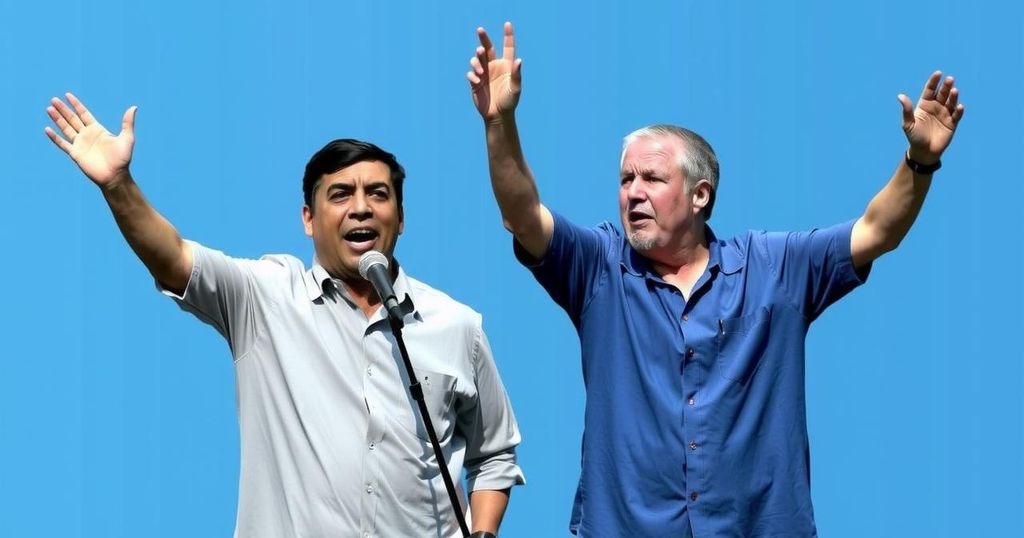Uruguay’s Presidential Run-off: A Close Contest Between Candidates

Uruguay will hold a presidential run-off on Sunday as Álvaro Delgado and Yamandú Orsi vie for power after neither secured a majority in the first round. With Delgado’s National Party supported by conservative voters, the race is expected to be close amidst widespread voter indecision and apathy, particularly regarding taxation and rising crime rates. Key issues will likely shape the election outcome, as both candidates navigate a politically nuanced landscape.
Uruguay is preparing for a pivotal presidential run-off scheduled for Sunday, after a recent electoral contest evolved into a tightly contested race. The candidates in focus are Álvaro Delgado of the conservative governing party and Yamandú Orsi from the left-leaning Broad Front coalition. This election follows last month’s initial vote, where no candidate secured a decisive majority, thereby necessitating this second round.
In the first round held on October 27, Orsi’s Broad Front garnered 44 percent of the vote, while Delgado’s National Party acquired a mere 27 percent. However, due to the substantial support received by other conservative parties, particularly the Colorado Party, which collectively amassed 20 percent, Delgado now possesses a strategic advantage in the upcoming race. The Congress remains evenly divided following the earlier vote, contributing to the uncertainty surrounding voter preferences, as recent polls indicate a near tie between the candidates with approximately 10 percent undecided voters.
Analysts suggest that the candidates’ subdued campaigning and shared perspectives on critical issues have contributed to a notable increase in voter indecision and apathy. Unlike other regions, where populist movements have disrupted the political landscape, the discourse in Uruguay has been comparatively mild. “The question of whether Frente Amplio raises taxes is not an existential question,” observed Nicolás Saldías, a senior Latin America and Caribbean analyst at the Economist Intelligence Unit.
Both candidates are also addressing public concerns regarding a notable rise in violent crime that has recently troubled Uruguay, a nation that has historically been recognized for its safety and stability. As citizens prepare to cast their votes, the outcome remains uncertain, underscoring the complexities of Uruguayan electoral dynamics.
The upcoming second round of the presidential election in Uruguay is set against the backdrop of a politically charged environment where the traditional divide between left and right parties has become increasingly pronounced. The Broad Front, which previously held power for 15 years, has been challenged by the current conservative government led by President Luis Lacalle Pou. Key socio-political achievements of the Broad Front such as the legalization of abortion, same-sex marriage, and marijuana sales continue to resonate among voters, complicating the electoral calculus as both sides work to capture the centre-ground in a climate marked by uncertainty and discontent.
The presidential run-off in Uruguay represents a critical juncture for the nation’s political future. Voter indecision, characterized by a significant proportion of undecided citizens and campaigns lacking in fervor, has created an unpredictable electoral scenario. The candidates’ attempts to address issues like violent crime, contrasted with the absence of heated anti-establishment sentiments found in other democracies, highlights Uruguay’s unique political landscape. As the election approaches, the nation awaits the decision of its electorate with bated breath.
Original Source: www.scmp.com







